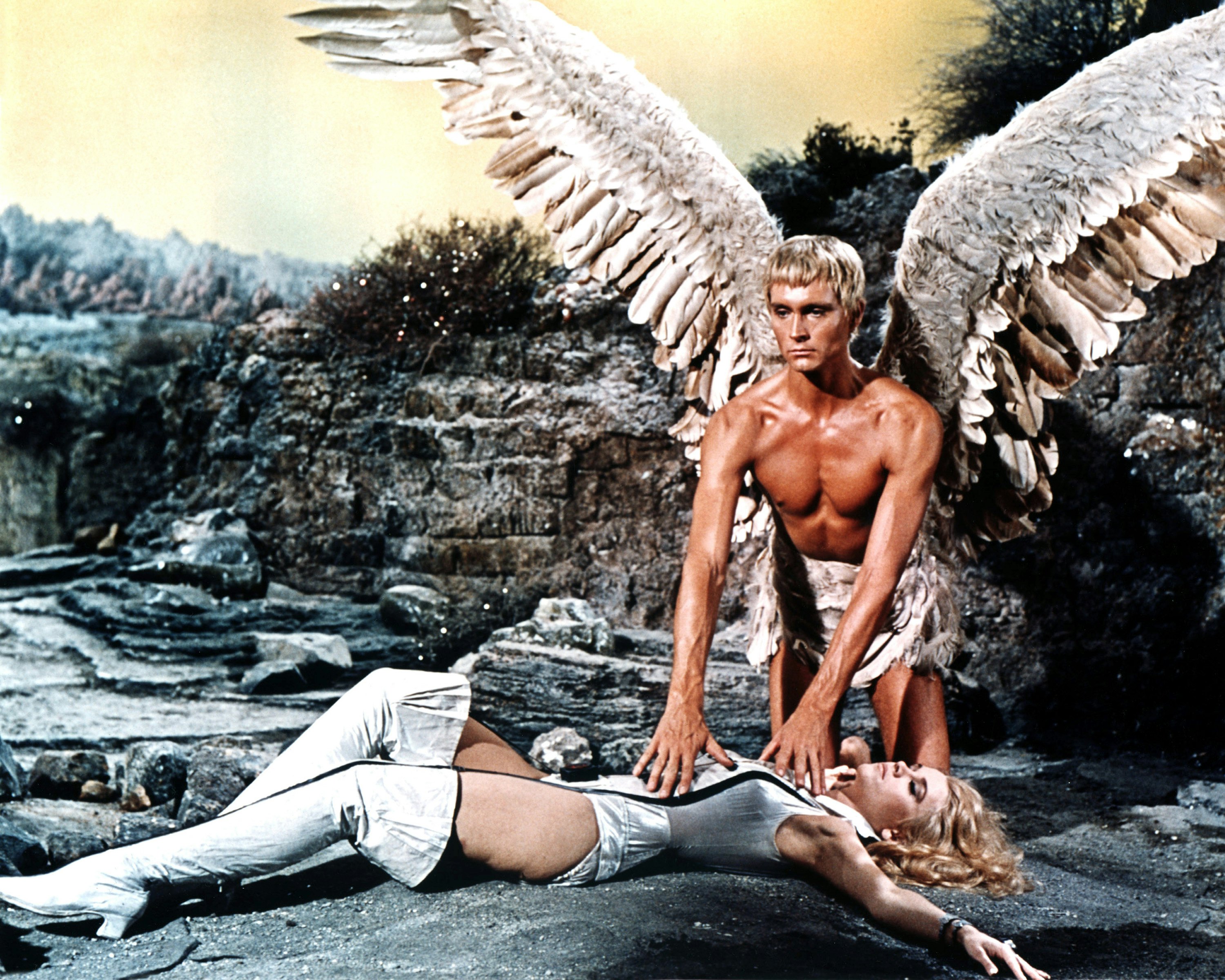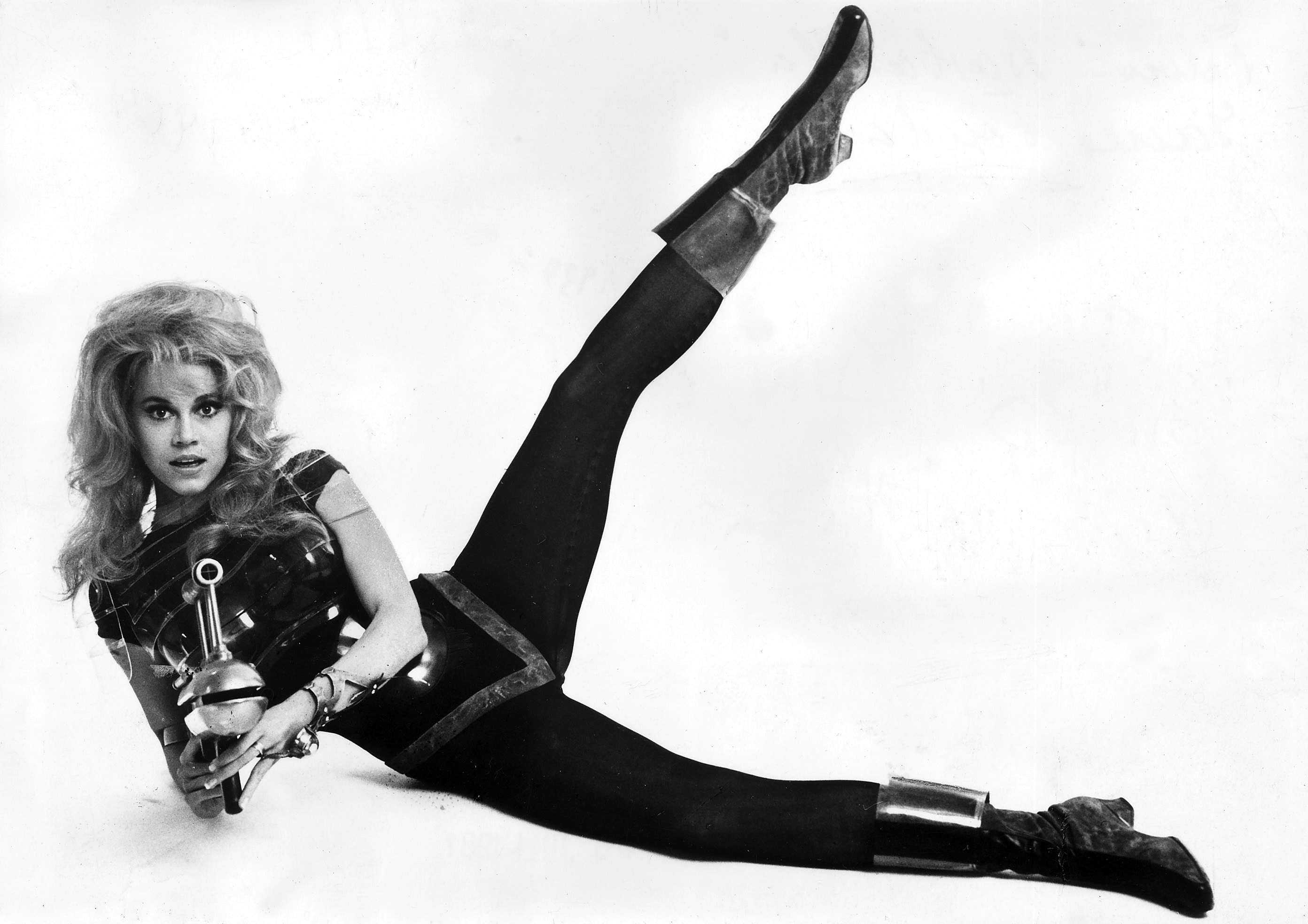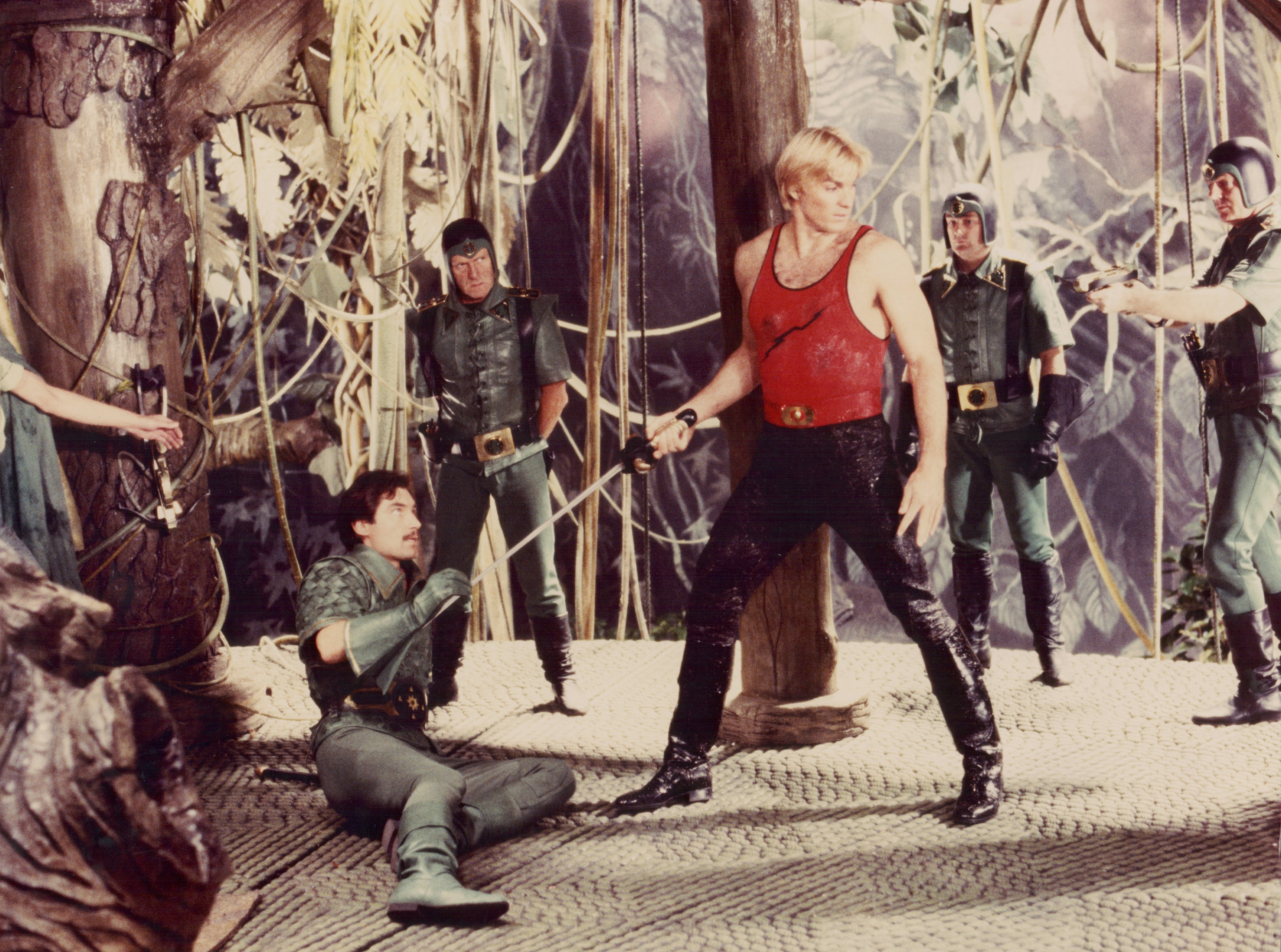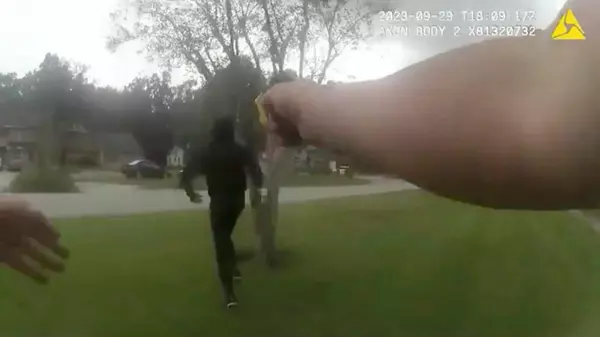
What does Ant-Man have to do with strip teases in zero gravity? Apparently, everything. In conversation with Inverse, Ant-Man and the Wasp: Quantumania director Peyton Reed explains how two cheesy and risqué science fiction flicks of the 20th century influenced the aesthetic of the Quantum Realm.
Even if you’re not obsessed with the MCU or how Quantumania fits into Marvel’s larger narrative arcs, there’s something else about the latest Ant-Man outing that makes it worthwhile. If you’re a fan of corny old-school sci-fi, Quantumania is here to validate that love. In an interview with Inverse's Hoai-Tran Bui, Reed says he was deeply influenced by “whacked-out movies” that populate the history of sci-fi cinema.
“Everything from like Barbarella to Flash Gordon,” Reed says. “And, briefly, Flesh Gordon, the X-rated rip off of Flash Gordon.”

No serious genre fan would accuse those movies of being deep or introspective. Famously, the 1968 romp Barbarella begins with Jane Fonda stripping off her space suit in zero gravity. It’s a sex comedy with Fonda as a kind of galactic James Bond tromping through the stars to save the day and get what she wants. Based on the Jean-Claude Forest comics of the same name, any deeper meaning found in it is either an accident or the result of a very precise use of camp.
Ditto Flash Gordon, the 1980 film starring former Playgirl hunk Sam J. Jones as Flash, a football player who’s accidentally recruited to stop the evil forces of Ming the Merciless (Max von Sydow). Just as the colorful Barbarella came from comic strips, so did Flash Gordon, who was first immortalized on-screen by actor Buster Crabbe in 1936.
Flash Gordon and Barbarella were a confluence of other influences, essentially retro movies even upon their release. George Lucas was influenced by the 1930s and ‘40s Flash Gordon, which is why, in 1980, Flash Gordon seemed to parody aspects of Star Wars. Tragically, Star Wars lacks a scene where Timothy Dalton brandishes a whip, but how this connects to Marvel is clear once you see Quantumania. The MCU movie isn’t as overtly sexual or campy as its influences, but Reed expanded their visual language.

“We really want to make it vivid and colorful and to really play around in a new corner of the Marvel Cinematic Universe,” Reed says. “We wanted to really send them on a whacked-out journey.”
By Marvel standards, Quantumania succeeds in the wackiness department. But if you’ve never seen Flash Gordon or Barbarella, you’re probably unaware of just how whacked-out old-school sci-fi can get. Barbarella has a character named Dildano, an innuendo you can probably deduce for yourself, and if you only know Dalton as Bond, you’ll be surprised by the erotic undertones of his relationship with Flash.
It’s great that Peyton Reed is infusing the MCU with the campy visual language of silly sci-fi classics. But as true genre cinephiles can tell you, it’s hard to top the unwieldy madness of Barbarella or Flash Gordon. If you need a follow-up to Quantumania, you can’t go wrong with those two. They’re not good, per se, but they’re influential and ridiculously enjoyable. Just don’t say we didn’t warn you.







